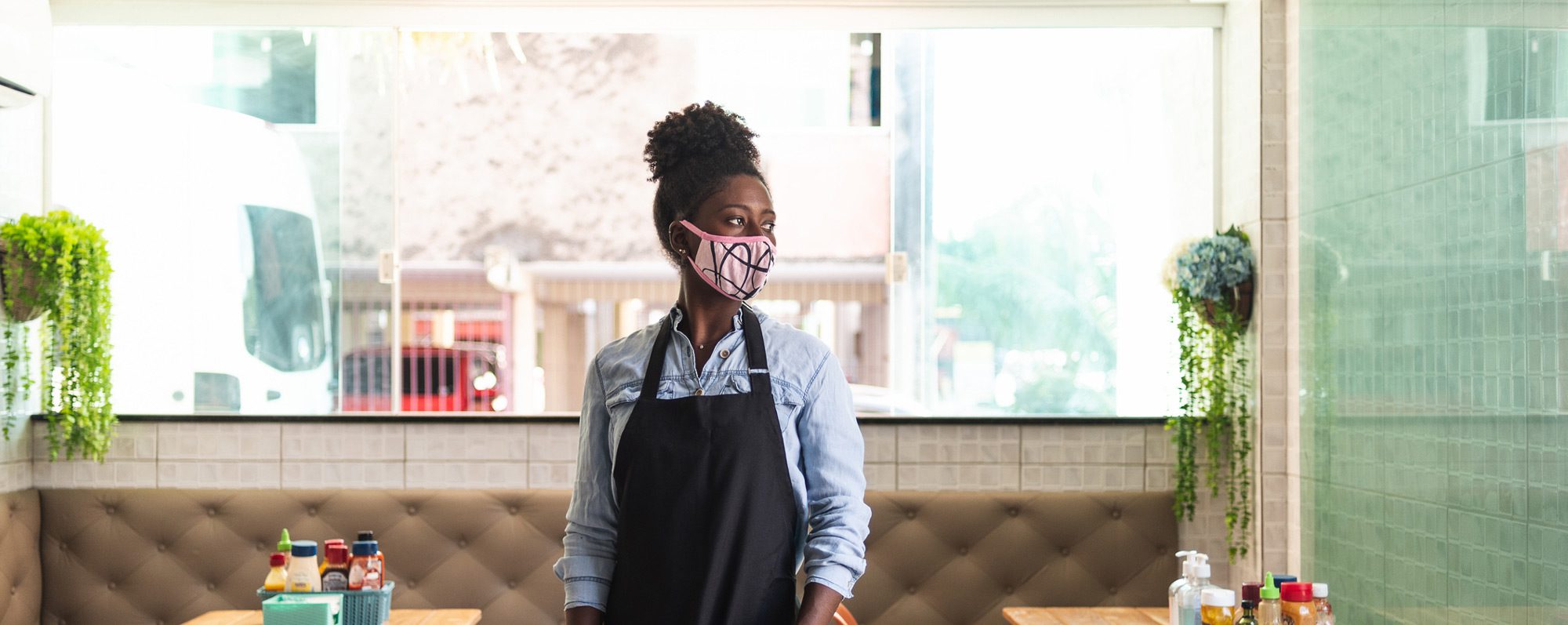

Even before COVID became part of our daily vocabulary, the foodservice and beverage industry had high rates of mental health challenges and substance use issues. It can be a stressful job at the best of times and the long, variable hours and fast pace make it difficult to always take care of ourselves. Burnout can take hold.
Running a restaurant in the midst of a global pandemic has ratcheted up the pressure, increased anxiety levels and created even more strain on our mental health. “The pandemic has made things worse in so many ways,” says Hassel Aviles, co-founder of Not 9 to 5, which she launched with executive chef and restaurateur Ariel Coplan in 2017. “This is everyone’s first global pandemic so we are all figuring it out as we go, but this has severe consequences.”
Through this challenging time, we’re all feeling extra anxiety, frustration, trauma and grief, she notes. Increased isolation due to physical distancing, job loss and business closures, financial insecurity, and a lack of sufficient support and resources are only piling on the pressure.
Aviles, who has worked as a bartender and server, knows firsthand the pressures and perils of the job. “Back then, no one was having conversations about mental health or addiction with staff.”
When Aviles and Coplan asked their hospitality community, 90 per cent said “yes” to experiencing mental health and/or substance use challenges. Their research and surveys over the last two years have revealed depression, anxiety, substance use, burnout and disordered eating as some of the top concerns.

When Aviles and Coplan asked their hospitality community, 90% said “yes” to experiencing mental health and/or substance use challenges.
There are some signs to watch for that can indicate someone you work with, or someone who works for you, might be struggling with their mental health:
- Change in personality. You may notice sudden or gradual changes in the way that someone typically behaves or the person may just seem different.
- Agitated. They seem uncharacteristically angry, anxious, agitated, or moody.
- Withdrawn. They withdraw or isolate themselves from others.
- Poor self-care. They stop taking care of themselves and may engage in risky behaviour.
- Hopelessness. They seem overcome with hopelessness and overwhelmed by their circumstances.
Adapted from changedirection.org
“The best way for employers to ensure they’re paying attention is to create a working environment built on psychological safety,” Aviles says. “It means you feel you can be vulnerable with one another without experiencing any negative consequences. For too long, workers have been told to ‘check their emotions at the door,’ and this intolerance of vulnerability has created an environment of suppression.”
Five tips for fostering psychological safety
- Demonstrate engagement. Be present and focus on the conversation, and ask questions because you truly want to know the answer.
- Role model. Practise active listening, and recap to show that you’re understanding and validating the thoughts and input of others. If something goes wrong, don’t place blame, instead focus on solutions.
- Be approachable. Be available and build rapport by talking about life outside of work.
- Involve your team. Seek the input, opinions and feedback from your coworkers, and acknowledge their input when you do make your decision.
- Mistakes are okay. Encourage teammates to take risks, and demonstrate that making mistakes are part of the process, and they provide opportunities to learn.

Tips for improving workplace health
- TIP: Acknowledge verbally and openly that no one is unaffected by this pandemic and its consequences, there is a lot of healing that comes from validation and feeling heard.
- TIP: Practise active listening skills.
- TIP: Rest, rest and rest. We are all exhausted, this experience is incredibly taxing on our bodies and minds.
- TIP: Be extra gentle to yourself and others.
- TIP: Triple down on a self-care routine, including nourishing yourself with a healthy balanced diet, exercise, sufficient sleep and social connection.
- TIP: Make a list of activities that spark joy for you. Refer to it weekly.
- TIP: Find safe ways to channel your intense emotions. These may or may not include anger, rage, sadness, frustration. Examples include rigorous exercise like boxing, art, singing, dancing, screaming, punching a pillow.
- TIP: Avoid toxic positivity for yourself and others. An excessive and ineffective overgeneralization of a happy, optimistic state across all situations isn’t healthy.
Aviles suggests creating a working environment where all team members are encouraged to seek help when needed, and have easy access to resources for mental health and substance use challenges. “It’s important to have an understanding of what supports are available including workplace accommodations, employee benefits and other means of support.”
Aviles and Coplan have created an online course to educate and train hospitality industry workers to better identify, understand, and respond to mental health and substance abuse challenges. They call it CNECTing, which stands for Change Needs Everyone Coming Together. “We chose this name because connection is essential to make a positive impact and change in our industry,” Aviles says.
- Important Resource: Digital assets for the CNECTing course are available here.
Learn more:
- Mind the Bar Foundation provides information and support resources for those in the hospitality industry who are struggling with depression, anxiety, thoughts of suicide, substance abuse, addiction, or workplace harassment.
- The Full Plate offers free resources and services designed for all hospitality workers.
- Wellness Together Canada was funded by the Government of Canada in response to the unprecedented rise in mental distress due to the COVID-19 pandemic.
- United States-based #Fair Kitchens is working to create a healthy kitchen culture based on open communication, passion, support and teamwork. More than 50 Canadian foodservice and beverage operators have already signed on as friends.


